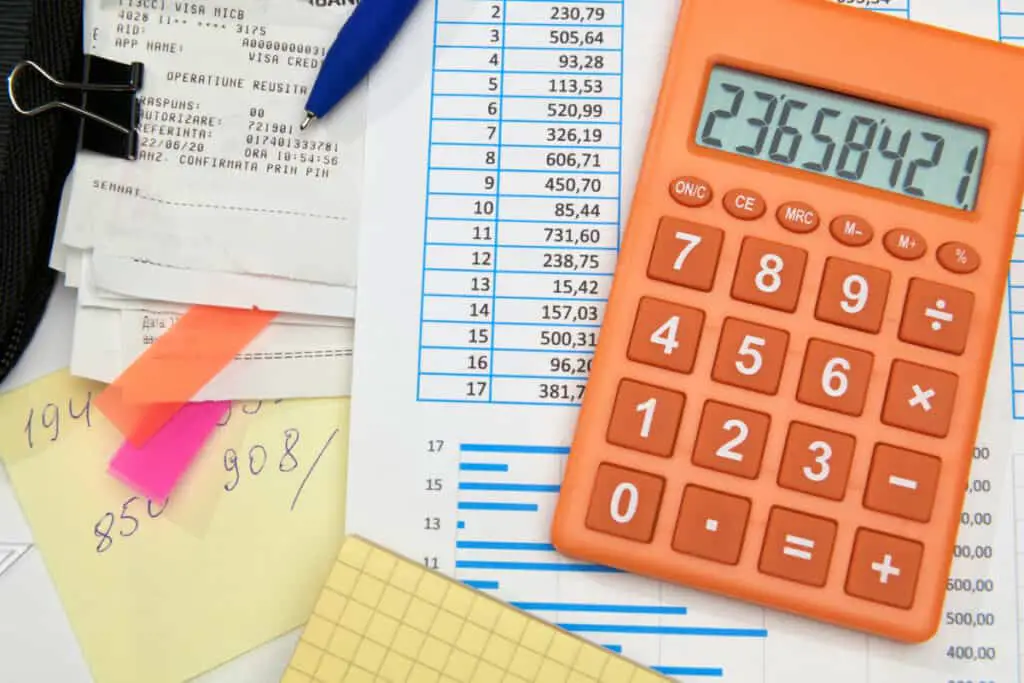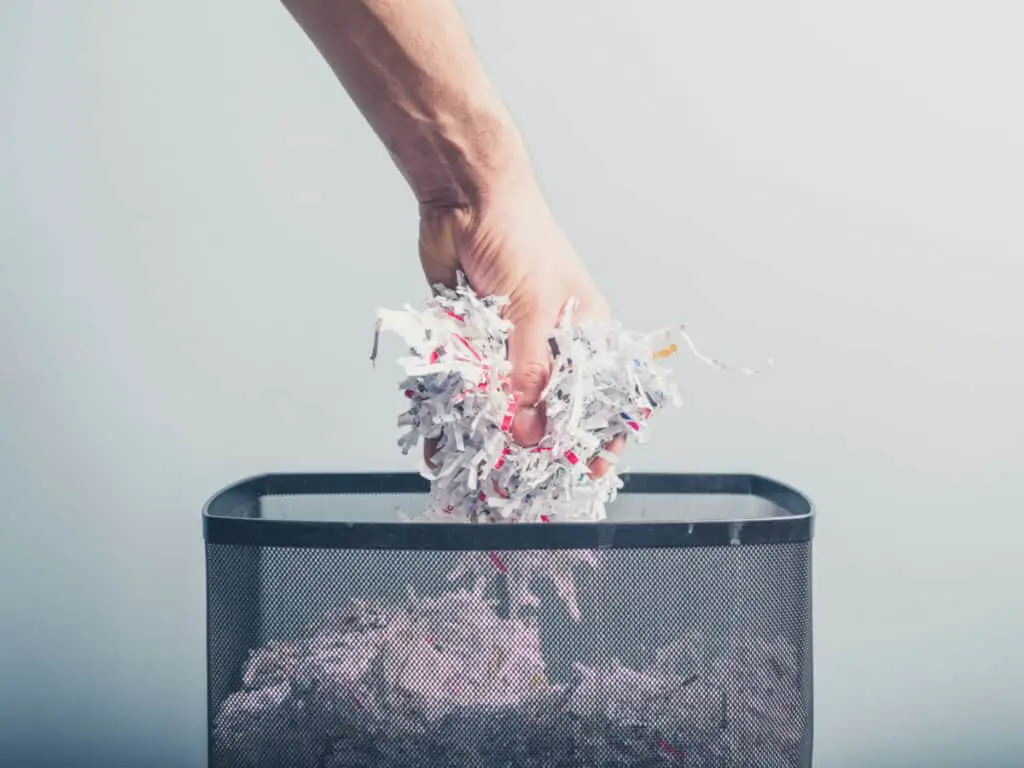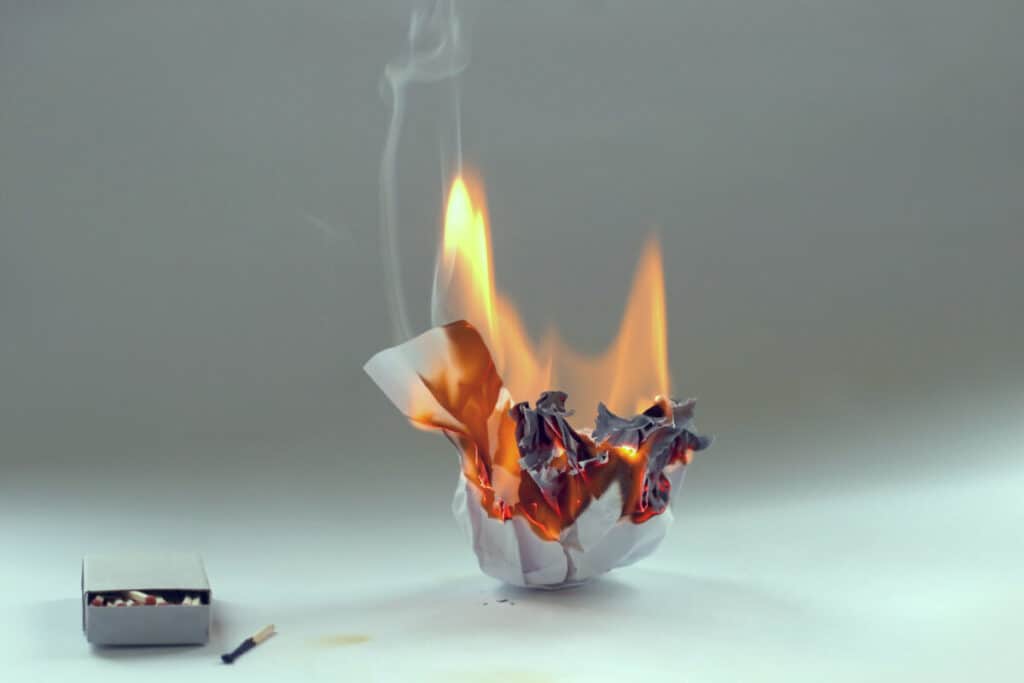
Taxes are something everyone with a job has to deal with. This means that eventually, you will have to dispose of tax documents. Here are the things you need to know to do this!
Common and effective methods of tax document disposal include shredding and burning. As tax documents contain such a large amount of personal information, it is important to make sure that they are disposed of in a way that ensures none of the said information can be recovered by identity thieves.
How can I guarantee I won’t need these tax records in the future? Can tax documents be recycled ever? Here, we have all the answers to any questions you may have!
When is it safe to get rid of old tax records?
According to the Federal Internal Revenue Service (IRS), people who correctly file their taxes annually need only keep personal records of tax documents for around three years. After this time, individuals are free to dispose of said documents in whatever manner they like.
The standard rule of thumb for how long to keep a tax document is three years from the date you originally filed your return or else 2 years from the date the tax was originally paid, whichever comes later. However, there are always exceptions to this rule. The IRS website lists several situations in which tax documents should be kept for longer.
For people who file claims for a loss from worthless securities or bad deductions, it is recommended you keep records of taxes for 7 years. For those who don’t report all income that should be reported, where the unreported income is more than 25% of the gross income listed on your tax return. It is recommended that a person keep records indefinitely if they file a fraudulent return or fail to file a tax return at all.
Once you are comfortable that your records are no longer needed for tax purposes, be certain to check if your documents are needed for other things. Some insurance companies require tax records for longer periods of time than the IRS. Likewise, certain creditors may also require tax records from a longer period.

What to do with digital tax documents?
Some people decide to dispose of paper documents while keeping a digital copy in case of future need. In cases such as this, be certain to store the digital files on a password-protected device so that unauthorized people can’t view them. There are electronic encryptions and protection services that you can utilize specifically for purposes such as this.
The U.S. Department of the Treasury provides instructions on how to encrypt documents using Microsoft Word. This can be another good way to protect documents stored on a person’s personal electronic device. Documents encrypted using this method require a password to access.
Web companies like Google Drive, Dropbox, and Microsoft OneDrive are among those companies where users can maintain 24/7 access regardless of location. They also provide easier sharing with second parties such as family members or medical professionals. When storing documents online, always remember to use a high-security password and a private internet connection to protect your privacy.

What to do with old documents?
Deciding the best manner in which to destroy unneeded tax documents is perhaps the most fun part of taxes. As previously mentioned, it is important to ensure that all critical personal information— such as birthdates, Social Security Numbers, addresses, income, and employment information— is entirely unreadable. When discarding old tax files, you must be certain that no information remains legible.
The go-to option for the disposal of such documents is to shred them. Shredding can be done by hand (though meticulous attention to detail is paramount when doing so) or by machine. Many stores or businesses offer paper shredding for a low cost, such as Staples, FedEx, Office Depot, and the UPS Store. There are also companies, such as credit unions that offer free community shredding days for members. Certain public libraries also offer shredding of sensitive documents for free, though not every library offers such a service.
The shredded documents can then be disposed of in the garbage, or reused for other purposes. If your printer paper is non-toxic, you can use shredded documents in composting or gardening. Another possible use for shredded documents is bedding for cage animals or lining for cat litter boxes. The paper shreds can provide needed cushioning for pets like guinea pigs and hamsters, and also absorb waste from the animal, making cleanup of the enclosure much easier. Using shredded paper is a good way to repurpose those documents beyond garbage or recycling.
Another method of total destruction is known as pulping. Pulping refers to the process of rendering tissues into a soft, shapeless mass. This can be done by taking either whole sheets or shredded bits of paper and mixing them in a water-bleach solution. Once the paper has been reduced to a pulp, it can be dried on a tarp for later disposal, or decanted onto a drying screen to be repurposed into new sheets of handmade paper for crafting. Where classic, non-composted shredding leaves room for an intrepid thief to puzzle strips back together, pulping leaves zero room for information retrieval.

The final suggestion is the good old-fashioned burning method. Instead of hauling documents to another location for shredding (provided you don’t have a personal shredder available for use) simply channel your inner drama and burn the documents in a fire-safe environment. Fire puts are a great place for document burning, as they provide a safe environment to burn the documents as well as a screen cover to prevent any flyaways or dangerous sparks.
You can also use a fireplace, or a metal can or tray to burn old documents. Just be sure to do so in a well-ventilated area where no unintended sparks can cause damage. Also, be certain to check local laws and ordinances on burning. Some places, particularly dry areas or places with high pollution issues, will institute burn bans during certain times of the year. Once the documents have burned completely, check the ashes for any remaining pieces that need to be destroyed. The cooled ashes can be thrown away, composted, or scattered in your yard.
Related Topics:
If you like the article above, here are some other similar articles you should check out!
What Should I Do with Old Golf Clubs
